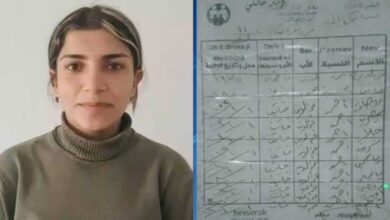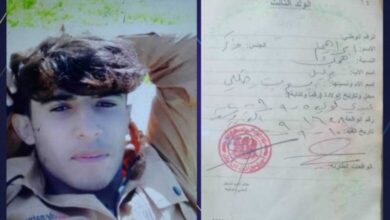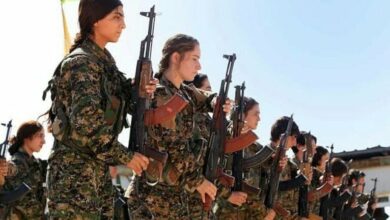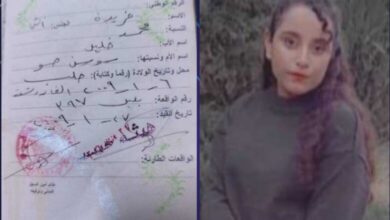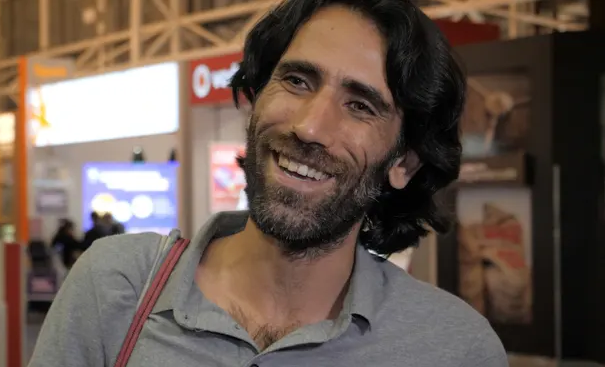
Behrouz Boochani granted refugee status in New Zealand
Yekiti Media
Behrouz Boochani, the Kurdish Iranian exile and journalist who became the voice of those incarcerated on Manus Island, has had his refugee status formally recognised by New Zealand, and granted a visa to live there.
He said he finally felt secure “knowing that I have a future”.
“I am very happy to have some certainty about my future, I feel relieved and secure finally,” he told the Guardian from Christchurch.
“But, at the same time, I cannot fully celebrate this because so many people who were incarcerated with me are still struggling to get freedom, still in PNG, on Nauru, in detention in Australia. And even if they are released, Australia’s policy still exists.”
Boochani was officially notified by New Zealand’s government that his claim for asylum had been accepted on Thursday, exactly seven years to the day after his arrival in Australia in 2013.
How many more people must die on Manus before Australia ends indefinite detention?
Behrouz Boochani
The date – 23 July – is also Boochani’s birthday. He turned 37.
Over the course of six years held within Australia’s offshore processing regime in Papua New Guinea, Boochani emerged as the voice of the Manus Island detention centre and a tireless campaigner for the rights of those detained by Australia.
He has written extensively for the Guardian on life in detention and won Australia’s richest literary prize for his book, No Friend But the Mountains, which is being made into a film.
He secured a temporary visa to fly to New Zealand in November last year as a guest at a writers’ festival, and lodged a claim for protection when he arrived.
Boochani has now been granted a one-year work visa, and can apply for permanent residency in New Zealand, a pathway to citizenship. He has lived in Christchurch since leaving Papua New Guinea.
He says while some New Zealand politicians have sought to politicise his asylum claim – in the context of an election there this year – his reception in his new homeland has been overwhelmingly welcoming.
At the height of the pandemic, people left gifts and flowers at Boochani’s door. “People care about each other in New Zealand. They pushed back when some politicians tried to demonise me, they said ‘we don’t accept that hate speech’,” he said.
He is stopped in the street regularly by people who recognise him, and want to talk.
And Christchurch, he told the Guardian, suited him. He rides a bicycle around the city – “I feel free on my bike” – and hikes in the hills surrounding the city.
“This city is still traumatised,” Boochani said, in reference to the mosque shootings of March last year, “but this city is building itself, people are bringing life into this city, day by day, and there is a very peaceful community here.”
Boochani is working still: collaborating with Canterbury, Melbourne and New South Wales universities on projects about climate change and displacement, and writing another book, a collection of short stories.
He said he speaks to, and continues to advocate for, those he was incarcerated with who remain in detention. “I have a responsibility to those people, and to that six years of my life. That’s why I must work still. I cannot forget about those people, or ignore that time, that would be immoral.”
A Kurdish investigative journalist in his homeland, Iran, Boochani was persecuted for his reporting and his support for Kurdish rights, and fled for Australia in 2013.
He arrived by boat on Christmas Island, an Australian territory in the Indian Ocean, on 23 July, the first place he reached where he could claim asylum.
He was forcibly transferred to Manus Island just over a month later, to a detention facility that was later found to be illegal. He would spend 2,269 days held by Australia’s offshore processing regime.
After a protracted court case, he and nearly 2,000 others were compensated for their unlawful detention.
Over the six years he was held on Manus Island and in Port Moresby, Boochani witnessed friends shot, stabbed and murdered by guards on Manus Island, saw others die through medical neglect, and watched others descend into mental anguish and suicide.
He was twice tortured for several days in the notorious Chauka solitary confinement block, in the now-demolished Manus detention centre. He was jailed for eight days for reporting on a hunger strike in the centre, which was put down by force by PNG police.
But throughout he maintained a role as a working journalist on the island, the most prominent – and, initially, the sole – voice bearing witness from within the secretive regime.
“I am still a journalist in this place,” he told Guardian Australia in 2015. “This is my work, my duty.”
theguardian

